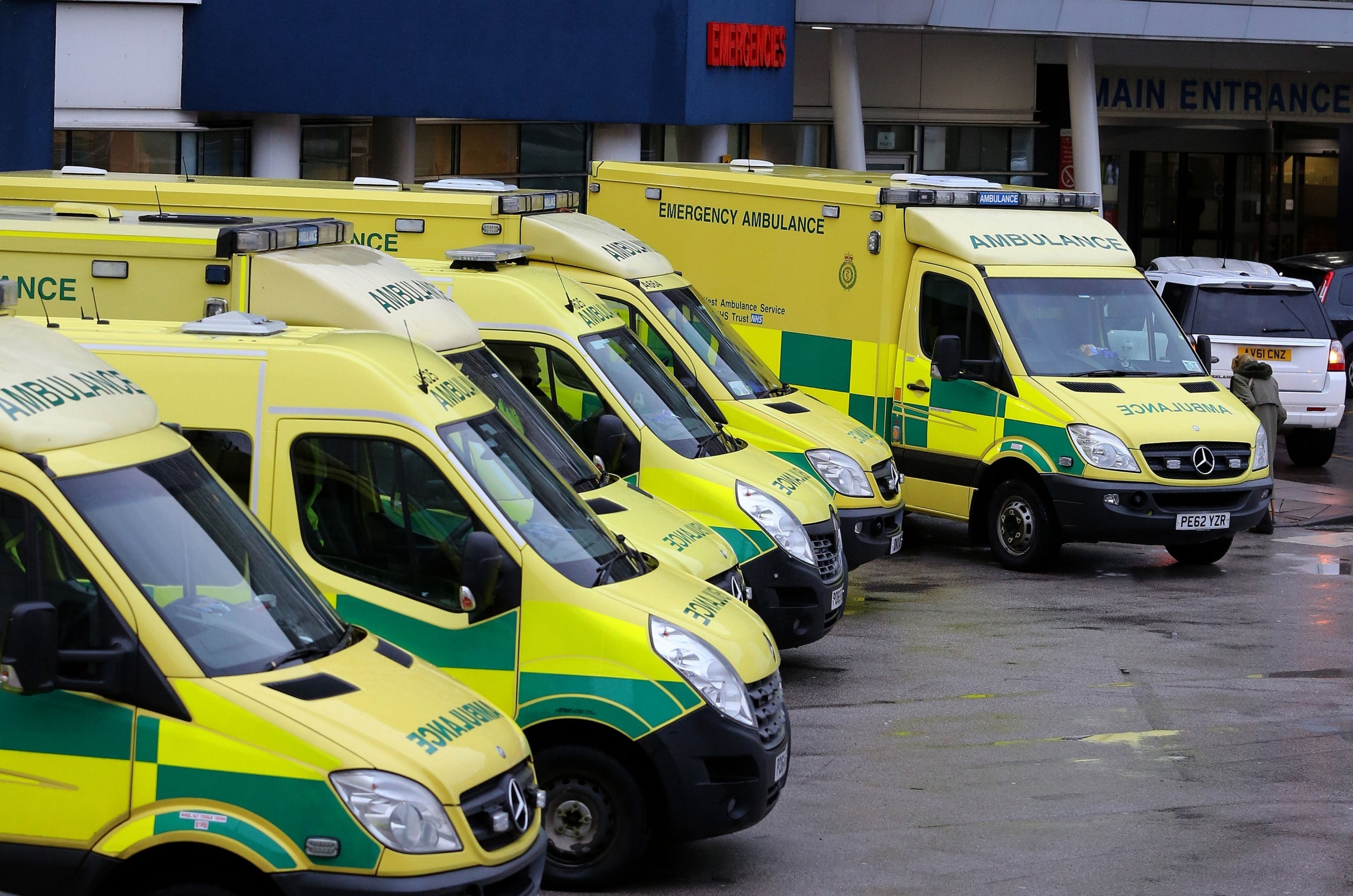Ambulance trusts get millions to boost staff amid NHS summer crisis
NHS England funding comes as multiple ambulance trusts under extreme pressure and thousands of 999 calls put on hold

Your support helps us to tell the story
From reproductive rights to climate change to Big Tech, The Independent is on the ground when the story is developing. Whether it's investigating the financials of Elon Musk's pro-Trump PAC or producing our latest documentary, 'The A Word', which shines a light on the American women fighting for reproductive rights, we know how important it is to parse out the facts from the messaging.
At such a critical moment in US history, we need reporters on the ground. Your donation allows us to keep sending journalists to speak to both sides of the story.
The Independent is trusted by Americans across the entire political spectrum. And unlike many other quality news outlets, we choose not to lock Americans out of our reporting and analysis with paywalls. We believe quality journalism should be available to everyone, paid for by those who can afford it.
Your support makes all the difference.Ambulance trusts across England are to be given an extra £55 million to increase their staffing levels to help cope with huge increases in demand.
NHS England has said the money will be used to recruit more 999 call handlers as well as paramedics and clinicians working in control rooms.
The cash injection comes after The Independent reported last week that thousands of 999 calls were being put on hold before being answered as ambulance trusts faced record demand.
At least five out of the 10 ambulance services across the country have declared ‘black alerts’ in the past week, meaning they are under “extreme pressure”.
The chief executive of West Midlands Ambulance Service, Anthony Marsh, has warned long delays in handing patients over at A&E departments was leading to patient harm and “tragic consequences.”
NHS England said the new funding would include recruiting liaison officers who can manage the handover of patients to hospitals to ensure paramedics can get back on the road as quickly as possible.
Ambulance trusts will be given freedom to decide how best to use the funding which could be used to recruit staff or provide incentives to stop people leaving.
Each trust will receive a share of funding based on the number of patients they serve.
During June, ambulance staff in England answered 890,000 emergency calls – 300,000 more than in 2020 and 150,000 more in June 2019, before the pandemic. Ambulance call-outs are up 80,000 more than the same month two years ago.
June was also the busiest month ever for major hospital A&E departments with reports of patients waiting 15 hours to be seen and 20 hours to get a bed.
During the month, a total of 12,451 people were put on hold for at least 2 minutes dialling 999 across England because there were too many calls and not enough staff to answer.
This compared to just 1,528 in April this year. For some patients in cardiac arrest, every minute could make a difference to their survival.
Managing director of the Association of Ambulance Chief Executives Martin Flaherty said: “This additional funding for the NHS ambulance sector is very welcome indeed at a time when ambulance trusts are busier than we have ever been.
“The money will be used to help increase capacity both in terms of available ambulances to respond to patients and also in our control rooms, which are having to respond to unprecedented 999 call demand.”


Join our commenting forum
Join thought-provoking conversations, follow other Independent readers and see their replies
Comments